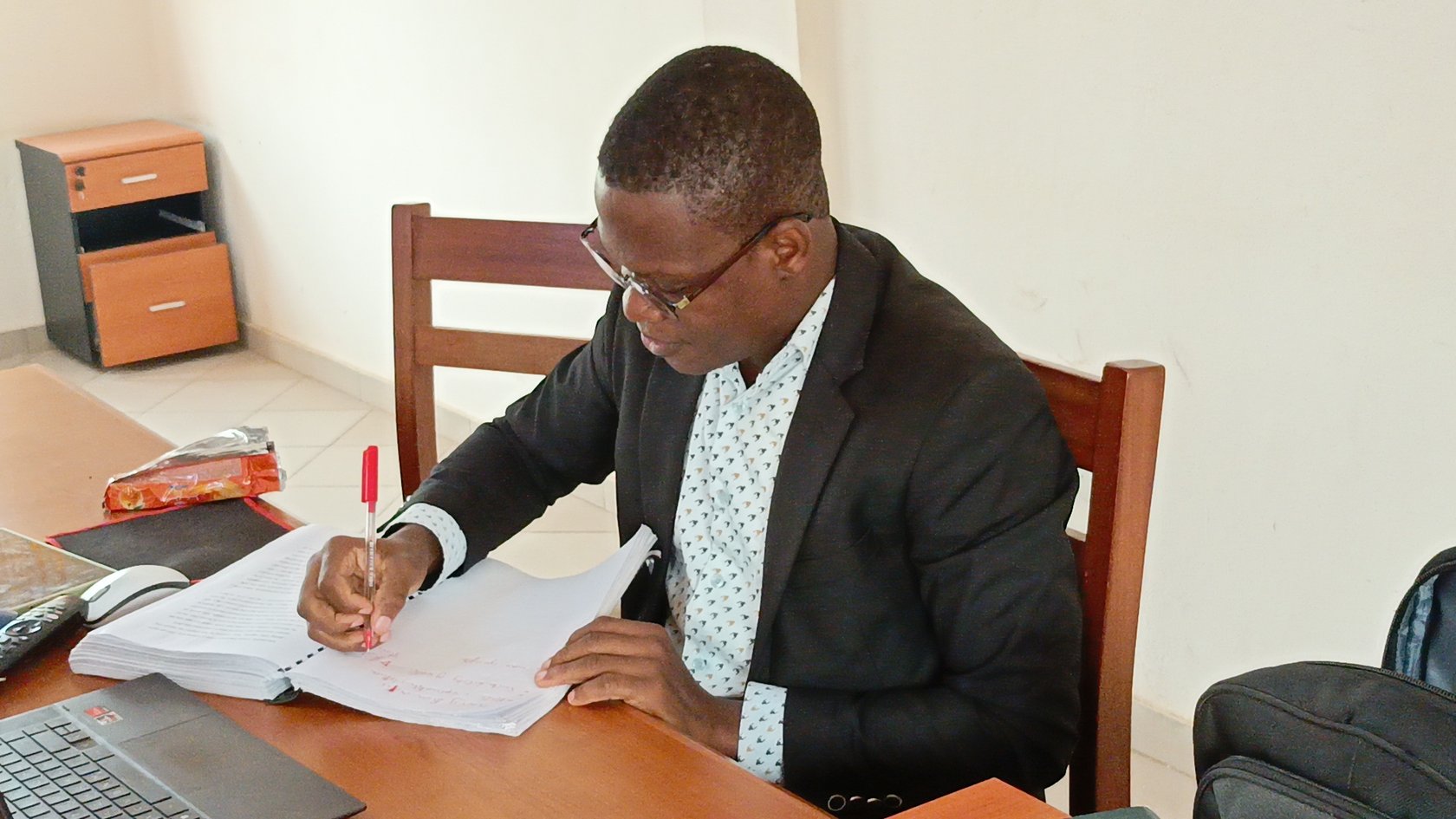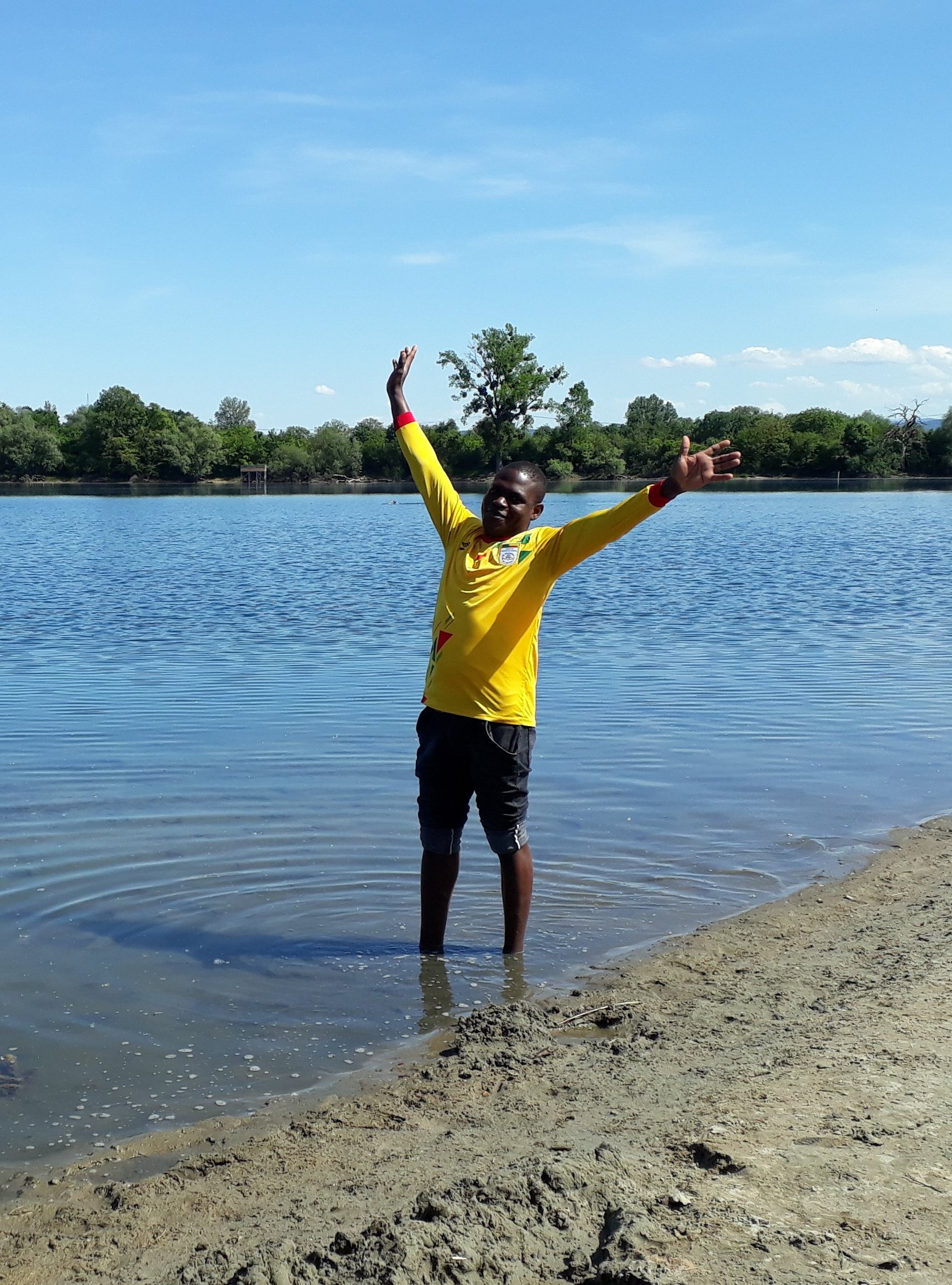While Arcadius Ahogle presented his scientific work on "Peri-urban agrosystems dynamics and their implications on land suitability for vegetable farming in Nairobi-Machakos Counties interface, Kenya" in just 20 minutes, considerably more time was taken up by the presenting the three examiner reports, which had not yet been known to the supervisors, the oral examination of the doctoral candidate (now reconnected) on his work and the collation of the two sets of five partial marks. The candidate was only online again for the announcement of the ‘verdict’ and the subsequent congratulations. 4.5 hours on and off on such an important day and all alone in a room far away and with a less than optimal internet connection – a challenge which Arcadius Ahogle mastered convincingly. On the other hand, it's awesome that something like this is now possible across continents.
Martinien Arcadius Ahogle Agassin, listing all his names here, joint Karlsruhe University of Applied Sciences for six months in 2022, an opportunity within the DAAD’s In-region scholarships if the candidate finds a supervisor at a German university. Arcadius Ahogle convinced due to his wonderful dataset he had been working on at Kenyatta University and his willingness to go beyond a pure land use/cover change analysis of his study area. Involving Prof. Dr. Gertrud Schaab served the purpose of receiving supervision and advise on how to spatially combine and scale his findings based on the measurements of contamination in vegetables, the soil the vegetables grow on, and the water they are irrigated with.
The performed GIS-based modelling (following a statistical approach of involving experts) tied the various ends of Mr. Ahogle’s work: those followed as a soil scientist in the lab, the farmland typology based on a survey of farmers (adding empirical evidence) and the look into landscape change based on very-high resolution satellite imagery and by making use of planning maps. Today, these types of integrations of multidisciplinary data and approaches are required in order to provide in-depth recommendations for the important issue of food and nutrition security, here putting the production of healthy basic food into the focus. More particular, the production of healthy vegetables within the heavily expanding peri-urban settlements not only around metropolitan areas world-wide.
Arcadius Ahogle can be proud of what he has achieved and that he got additional international exposure. By publishing his still pending papers, he will ensure that the relevance of his scientific work will become widely visible and known.

